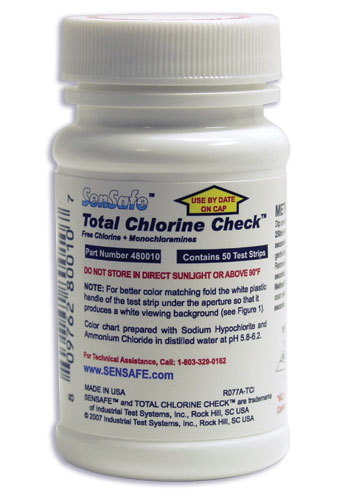Just as growers of plants must watch over their fields, so must they monitor the chlorine levels in the water they use to irrigate their fields.
Ideally for the farmer, the water going into the ground and/or getting sprayed over his fields should contain as low a disinfectant concentration as possible since chlorine kills more than just microorganisms. In too great a concentration it destroys plant life as well.
How Can Farmers Monitor Chlorine Levels?
While several methods for testing chlorine levels in farm water exist, and all have merit, the simplest chlorine level testing method for farmers comes in the form of dip-n-read test strips. They require no formal training, cost very little, and give fast, accurate results typically in under a minute. See below for examples of test strips well suited for testing chlorine levels in farm water:
Do Farmers Test for Free Chlorine or Total Chlorine in Farm Water?
Most farmers test for total chlorine in farm/irrigation water. The total chlorine concentration includes the free chlorine residual and the combined chlorine (chloramine) residual. Both free chlorine and combined chlorine can function as oxidizers, though free chlorine typically does work much more effectively.





